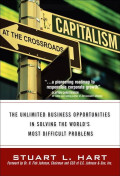
CAPITALISM AT THE CROSSROADS: THE UNLIMITED BUSINESS OPPORTUNITIES IN SOLVING…
In Capitalism at the Crossroads, Hart shows companies how to identify sustainable products that can drive new growth as they also help solve today's most crucial societal problems. Drawing on his r…
- Edition
- -
- Call Number
- 658.408 HAR c
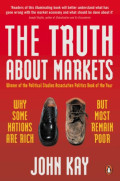
THE TRUTH ABOUT MARKETS: WHY SOME NATIONS ARE RICH BUT MOST REMAIN POOR
Capitalism faltered at the end of the 1990s as corporations were rocked by fraud, the stock-market bubble burst and the American business model--unfettered self-interest, privatization and low tax-…
- Edition
- -
- Call Number
- 330.122 KAY t
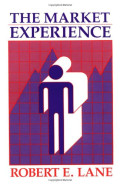
THE MARKET EXPERIENCE
In a period when market economics are widely recognised as the most desirable form of economic organisation, Robert Lane offers evidence that the major premises of market economics are mistaken. La…
- Edition
- -
- Call Number
- 330.122 LAN m
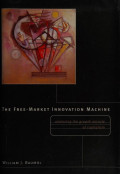
THE FREE-MARKET INNOVATION MACHINE: ANALYZING THE GROWTH MIRACLE OF CAPITALISM
Why has capitalism produced economic growth that so vastly dwarfs the growth record of other economic systems, past and present? Why have living standards in countries from America to Germany to Ja…
- Edition
- -
- Call Number
- 330.122 BAU f
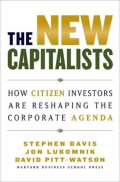
THE NEW CAPITALISTS: HOW CITIZEN INVESTORS ARE RESHAPING THE CORPORATE AGENDA
Thanks to the rise of mutual funds and retirement plans, the actual owners of the world's corporate giants are no longer a few wealthy families. Rather, they're the huge majority of working people …
- Edition
- -
- Call Number
- 338.6041 DAV n
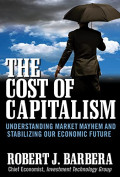
THE COST OF CAPITALISM: UNDERSTANDING MARKET MAYHEM AND STABILIZING OUR ECONO…
Examines the financial crises of the past two decades to offer an analysis of the current recession, and argues for a new economic paradigm that limits the potential mayhem of the free market witho…
- Edition
- -
- Call Number
- 338.543 BAR c
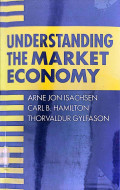
UNDERSTANDING THE MARKET ECONOMY
This book is primarily concerned with describing the economic institutions and functions of market-oriented economies and the theories to explain them. This explanation is directed in particular at…
- Edition
- -
- Call Number
- 330.122 ISA u
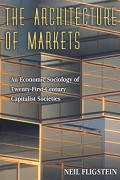
THE ARCHITECTURE OF MARKETS: AN ECONOMIC SOCIOLOGY OF TWENTY-FIRST-CENTURY CA…
Market societies have created more wealth, and more opportunities for more people, than any other system of social organization in history. Yet we still have a rudimentary understanding of how mark…
- Edition
- -
- Call Number
- 330.122 FLI a
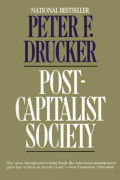
POST-CAPITALIST SOCIETY
"The basic economic resource - 'the means of production', to use the economist's term - is no longer capital, nor natural resources, nor 'labour'. it is an will be knowledge." With penetrating insi…
- Edition
- -
- Call Number
- 330.9049 DRU p
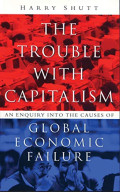
THE TROUBLE WITH CAPITALISM: AN ENQUIRY INTO THE CAUSES OF GLOBAL ECONOMIC FA…
Recent instability in the financial markets has shaken confidence in the global economic order. Is the current variant of ?free market? capitalism in fact sustainable? This remarkable book explains…
- Edition
- -
- Call Number
- 330.9 SHU t


 Computer Science, Information & General Works
Computer Science, Information & General Works  Philosophy & Psychology
Philosophy & Psychology  Religion
Religion  Social Sciences
Social Sciences  Language
Language  Pure Science
Pure Science  Applied Sciences
Applied Sciences  Art & Recreation
Art & Recreation  Literature
Literature  History & Geography
History & Geography